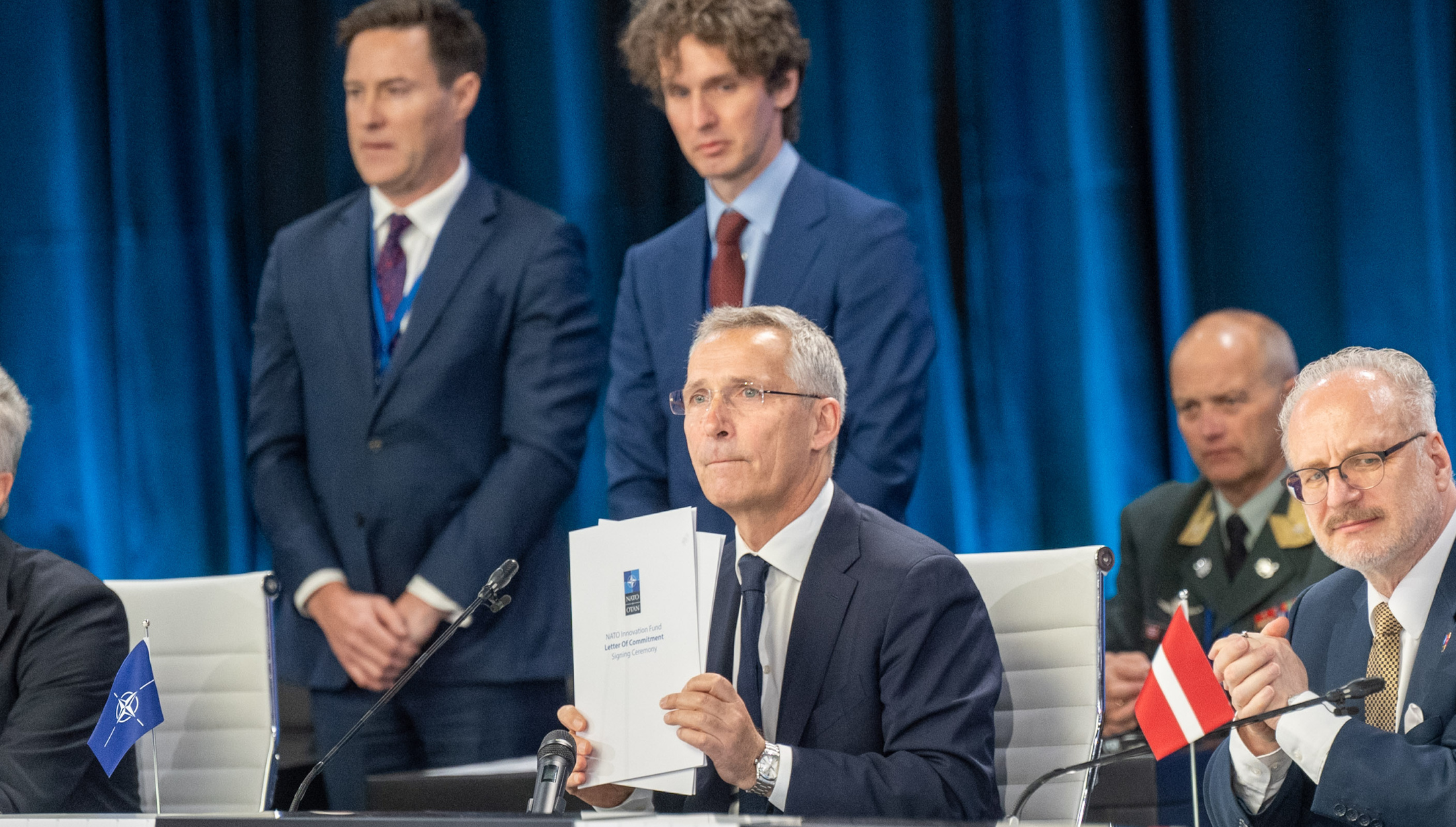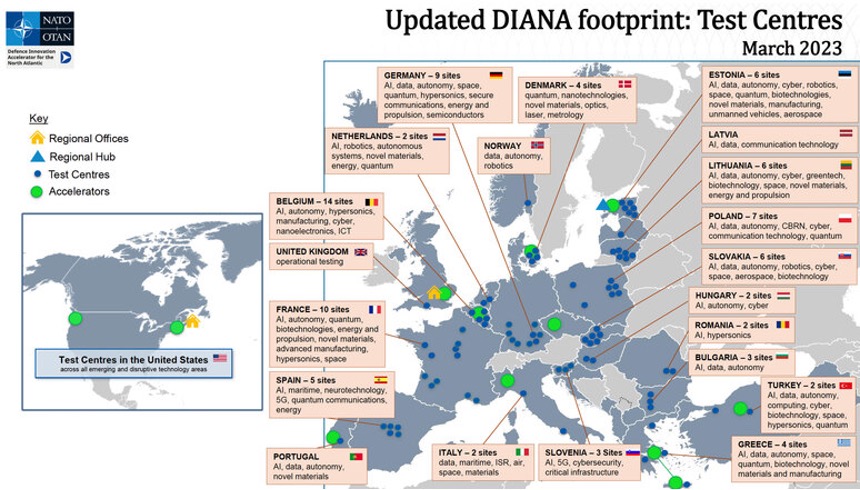Innovation has always been a key focus for the North Atlantic Treaty Organisation (NATO), which seeks to maintain its technological edge and credibility to ensure deterrence. And for some years now, the Alliance and the European Union (EU) work in close cooperation on this matter, especially on Emerging and Disruptive Technologies (EDTs).
EDTs are those innovations most likely to bring radical change in our current perspectives on geopolitics and replace existing solutions, concepts and “conduct of defence affairs”.
NATO first drafted a EDTs Implementation Roadmap in 2019, then a common strategy in 2021, in order to foster modern technologies and improve both decision-making and interoperability within the Alliance. The “Foster and Protect” NATO strategy focuses on 9 main priorities such as artificial intelligence (AI), autonomy or space. A cooperation between the public, private and academic sectors called triple helix supports these innovations.
In June 2023, the Defence Innovation Accelerator for the North Atlantic (DIANA) programme launched its competitive call for proposals. Through the three one-year pilot challenges, NATO aims at building a stronger innovation policy within the Alliance, in particular regarding EDTs.
In this article, C&V Consulting highlights the initiatives launched by NATO at the Brussels Summit in 2021 as part of NATO 2030, namely DIANA and the NATO Innovation Fund (NIF).
The Defence Innovation Accelerator for the North Atlantic (DIANA) : an accelerator programme for rapid dual-use solutions
On one hand, DIANA is a joint funding accelerator programme that seeks to identify critical dual-use (civilian and defence) challenges and quick solutions. Cutting-edge companies – most of them early-stage start-ups or SMEs – wishing to answer these needs are most likely to have solutions at TRL 4 or above. The 2023 DIANA’s Pilot Challenges focus on 1) energy resilience, 2) secure information sharing, 3) sensing and surveillance. The call for proposals closes the 25th of August.
The selected companies (30 start-ups) will receive 100 000 € in the first phase, and 300 000 € in the second one (3 to 6 start-ups). They will have access to the ressources of a network of accelerators and test centers across the Alliance. Additionally, companies will have the possibility to be monitored by end-users, scientists or even industry experts. Ultimately, DIANA provides possibilities to market both with NATO and Allies.

